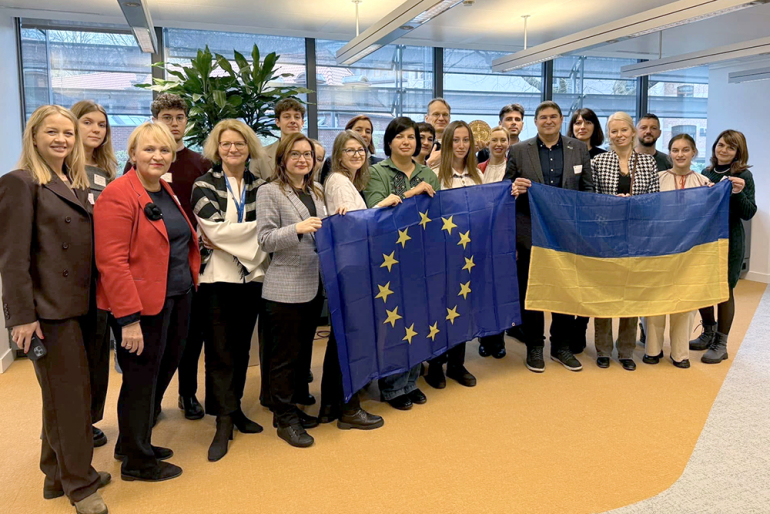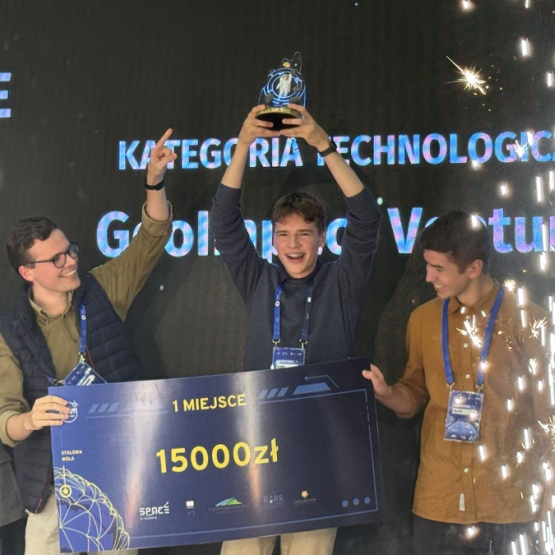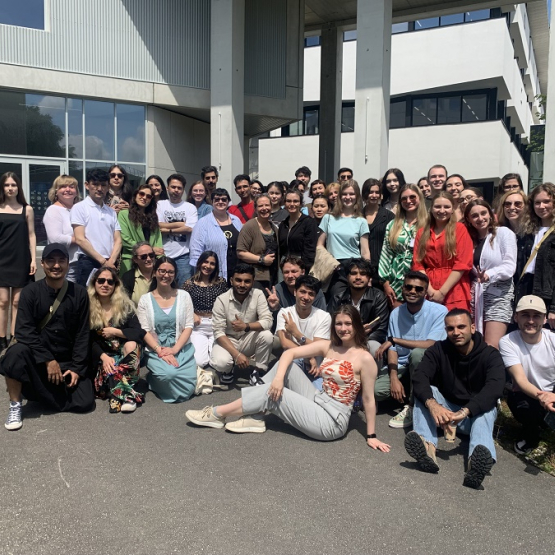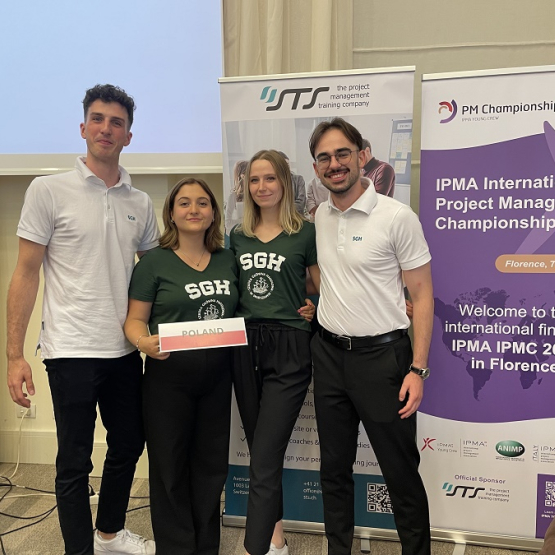
On 8-15 December 2024, Ukrainian researchers and students visited the European Union institutions in Brussels as part of a study visit aimed at familiarising them with the principles of operation and key decision-making mechanisms in the EU as well as cooperation with Ukraine in the context of the EU integration.
The participants were able to visit the European Commission, the European Parliament, the European Economic and Social Committee, several key directorates and other European policy-making bodies.
INTENSIVE PROGRAMME
The study visit began at the European Commission Visitors’ Centre. The programme began with a presentation entitled Shaping the Future of Europe: The Work of the European Commission, delivered by Petr Mooz, Senior Expert at the Directorate-General for Budget (BUDG) and representative of the Directorate-General for Communication. The meeting outlined the structure and operation of the European Commission and its key tasks in the EU decision-making process.
It was followed by a discussion on international coordination of crisis response, humanitarian protection and crisis management in the EU. A lecture on this topic was delivered by Nadiya Vertebna, a specialist in international relations from the Foreign Policy Instruments Service (FPI). The session devoted to the activities of the European Anti-Fraud Office (OLAF) presented the activities related to the EU budget and fight against corruption. A presentation on the EU economic and trade relations with Ukraine was given by Fredrik Beckvid Tranchell, Policy Coordinator for Ukraine at the Directorate-General for Trade (DG TRADE). The day ended with a visit to the House of European History, where participants learned about the social, political and cultural history of Europe.
The next day began with a visit to the House of Eastern Poland in Brussels, where the discussed topics referred to the representation of Polish regions in European institutions. The key point on the agenda was the meeting with Jochen M. Richter, Chairman of the Global Security Forum, who presented international security issues. Then, the participants visited the Directorate-General for Education and Culture, where the role of education and culture was discussed in view of international cooperation development.
On the third day, there was a visit to the Directorate-General for Neighbourhood Policy and Enlargement Negotiations (DG NEAR), where we discussed the issue of the EU policy towards neighbouring countries and the integration process and cooperation with Ukraine, in particular under the Ukraine Facility programme. A Ukrainian group of participants, together with the SGH representatives, visited the Mission of Ukraine to the European Union, where talks were held in Ukrainian on further strengthening of mutual relations.
The fourth day of the visit began with a meeting with political advisors to MEP Marie Toussaint on the Environmental Crime Directive. Then, the group visited the headquarters of Business and Science Poland, an organisation whose activities focus on supporting Polish entrepreneurs and scientists in the European arena. The next item on the agenda was a visit to the Directorate-General for Research and Innovation (DG RTD), where discussions were held on the development of science, research and innovation in Europe and cooperation with Ukraine, with emphasis the importance of science for the future of European integration.
On the last day, the participants visited the European Parliament, including the Parlamentarium – an interactive centre presenting the history and operation of the EP.
PARTICIPANTS’ OPINIONS
The participants of the study visit emphasised that it was not only an opportunity for them to expand their knowledge of the operation of EU institutions but also an inspiration for further activity for international cooperation and building relations between Ukraine and the European Union. The atmosphere of meetings and talks was extremely open, conducive to the exchange of views. The participants could ask questions. In conversations with experts, they drew attention to the issues such as increasing the attractiveness of Ukrainian universities for future students, prospects for closer cooperation between universities and the Ukrainian government and the possibilities of integrating Ukrainian academic institutions with their European counterparts.
Kostyantyn Kyrichenko, KSE Vice Rector for International Cooperation said, “We are looking forward to new projects with our European partners on topics currently challenging for Ukraine, including urban development and digital democracy. (..) We are also thinking about projects which will enhance Ukraine’s contribution to the European project.”
Svitlana Zhiltsova, institutional coordinator of the “CIVICA for Ukraine” project at the Vasyl Stus Donetsk National University (DonNU) said, “It was an opportunity for all participants to see Ukraine’s future – a future in which our country becomes a full member of the European community. It is a motivation to do our best to become part of the EU.”
The knowledge acquired in Brussels is a valuable tool for the participants in their further professional, scientific and social activities. Many of them plan to use this experience to strengthen relations between Ukraine and European institutions and promote the idea of Ukraine’s integration with the EU.
SIGNIFICANCE OF THE VISIT FOR SGH AND CIVICA
The study visit to Brussels was an important step in SGH efforts to strengthen international cooperation and support European integration. As the coordinator of project “SGH and CIVICA for Ukraine”, SGH confirmed its commitment to building bridges between the academic communities of Europe and Ukraine. The trip also had a symbolic dimension, showing European solidarity and the value of cooperation in building peace and unity. The participants were able to expand their knowledge of European compromise, decision-making processes and the importance of active participation in the political and social life of the EU. Strengthening ties between Ukrainian universities and European institutions is an extremely important element of this process, a step towards Ukraine’s future integration with the EU.
The visit was organised by Dr. Iryna Degtyarova and Prof. Małgorzata Molęda-Zdziech, as part of the project “SGH and CIVICA for the European Future of Ukraine”, financed by the Polish National Agency for Academic Exchange (NAWA) under the “Solidarity with Ukraine – European Universities” programme.
The Ukrainian community was represented by five partner universities of SGH and CIVICA: Vadym Hetman Kyiv National Economic University (KNEU), Vasyl Stus Donetsk National University (DonNU), Ukrainian Catholic University (UKU), National University Kyiv-Mohyla Academy (NaUKMA) and Kyiv School of Economics (KSE). The visit was also attended by representatives of the SGH student community, representing the Student EU Association and the Student Association for Ukraine’ Recovery.
JAKUB MIRKOWSKI, President of the SGH European Union Society
MONIKA WRONA, Vice President of the SGH European Union Society
DANYLO ZVARYCH, President of the SGH Student Association for Ukraine’ Recovery



